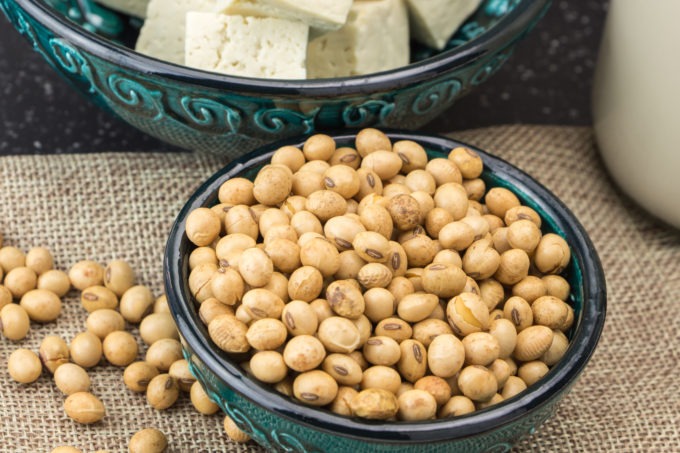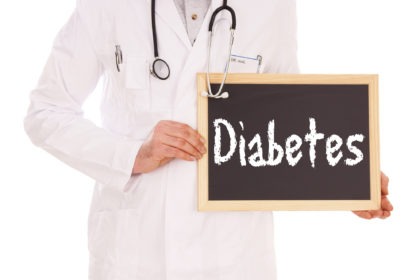The Diabetes Summit was truly eye-opening. One of the very interesting segments was from a parent who is raising a T1D child. I always say that my battle is half as difficult as those that a parent of a T1D child must face. His name is RD Dikeman, and he has a very interesting story to share.
RD Dikeman
As with most parents, this father was caught completely off guard when their child had a diagnosis of T1D at the young age of 8. Like a majority of parents in this situation, the first and foremost discussions were with their doctor about how to manage the disease using medication.
60 Carbs Per Meal, Are you Serious…?
The doctor initially explained the disease and how the child should maintain a typical diet with lower sugar intake but shouldn’t deviate much from what a standard american diet entails. The doctor recommended a diet with 40-60 grams of carbohydrates per meal (I probably eat this in a day, if that), which seems odd considering the child has a disease deficient in adequately being able to process carbs.
T1D on Standard American Diet = Extreme Blood Sugar Volatility
After initially following the doctors orders, the family experienced heavy doses of insulin injections and subsequent extreme volatility and unpredictability in their son’s blood sugars.
This father was interesting because he was very quantitative about how he helped his child manage the disease by experimenting with different foods and monitoring how they impacted his son’s blood sugars. This was a similar strategy that I took once I became diagnosed with the disease.
Not only were his son’s blood sugars extremely volatile, but his A1c readings were in the mid-to-high 5 levels. The fact of the matter is that even though the mainstream doctors will target an A1c in the 5.5 to 6.5 range for a T1D, this is still relatively high and causes damage to the body.
Early on the father realized that it’s nearly impossible to predict what his son’s blood sugar levels would be while eating the doctor recommended diet. The father followed the doctor’s orders, but soon realized how stressful not only his son’s life was, but also the life of his family.
Dr. Bernstein to the Rescue
Much like me, the father started to question the doctor’s recommendations and began experimenting with other diets to help stabilize his son’s blood sugars. This was mostly through his son’s research in finding Dr. Bernstein’s Diabetes Solution which promotes a higher protein / lower carb approach to managing T1D.
After researching Dr. Bernstein’s strategies, RD Dikeman realized that although the doctor’s orders were allowing their son to live with the disease, his son was still experiencing extreme highs and lows in his blood sugars on a daily basis which would ultimately adversely affect his health down the road.
The father did a ton of research and decided to go against doctor orders and placed his son on a high protein / low carb diet which ultimately made the disease much easier to cope with and began yielding A1cs in the high 4’s and low 5’s.
After implementing this diet, his son now has a consistent A1c around 5.0 which is astounding for a T1D, especially a child (much better than my 5.6). His commentary was very interesting in the Diabetes Summit video as he stated that the mainstream medical community pushes for a T1D disease management that promotes high blood sugars to a certain extent.
Doctors Bullying T1D Parents
One quote that stood out to me in the segment was “It’s as if the doctors are so fearful of litigation from hypoglycemia (low blood sugars) that their mode of practice is to run the children as high as possible to avoid any legal repercussions.” He even mentioned parents getting “bullied” by the doctors to push a high carb / high insulin diet as the only alternative to managing T1D in their child.
Now, I don’t fully agree with how this father is managing his son’s disease, but I do agree that he heavy protein/low carb is a much better approach than the mindless recommendation of a heavy carb approach that mainstream doctors regurgitate to parents day in and day out.
Realistic Juvenile T1D Management
I’m going on nearly 3.5 years of managing this disease medication free with a mostly plant-based raw vegan diet. I realize though, that this is, for the most part, an unrealistic diet for a young child to maintain. I personally don’t even know how I would manage my own child’s T1D if the situation ever came.
So, I absolutely applaud this father, and his son, for thinking outside of the box and doing the extra research to realize that doctor’s do not have all of the answers, and borderline recommend disease management tactics that can be more detrimental to a child’s health than other alternatives.
It makes sense though from doctor’s perspective. I mean why would you recommend a higher protein/low carb diet that would potentially expose a child to the risk associated with lows. The low blood sugars can result in immediate issues that could cause a child to pass out or go into diabetic hypoglycemia (very bad stuff).
By promoting a higher carb diet that requires heavier doses of insulin, the child will have higher blood sugars than a normal individual, but the harmful effects would not be seen for years to come which is the standard way to approach the disease.
T1D is a Business, Everything is a Business
It begs the question of why would doctors not at least provide this alternative method of managing the disease to parents? Not to mention people like me that can manage the disease medication free with a plant-based mostly raw diet.
I know people probably think I’m a bit of a conspiracy theorist, but everyone must realize that diabetes management is a massive lucrative business enterprise. If everyone managed the disease like me, there would be way less revenue generated from diabetes medication.
I encourage parents of T1Ds and all walks of T1Ds to think through this strategy at managing the disease. It’s just plain wrong of the lack of education that mainstream doctors provide T1D patients on the options of how to manage the disease.
Doctors will always have their place in the world helping people cope with diseases, but they are educated and employed to push medication, it’s as simple as that.
My endocronologist is good guy, but he is astounded at what I’m doing. He said that he has no other patients that are able to do what I do. We need to educate the doctors and let them know that their are other alternatives to managing the disease and they need to inform other patients of these approaches.
For all of you doctors out there, you must agree that this is the right thing to do. You have great responsibility in that you are the main focal person that nearly all T1Ds are funneled to soon after diagnosis. You must start providing all of the options to T1Ds and not merely recommend this high carb / high insulin diet.
Type One Grit
For more information on this father’s journey, please check out his facebook page at Type One Grit. From my understanding, it’s actually the largest following of T1Ds that manage the disease from the high protein / low carb approach.






Thank you for this blog, very inspiring!